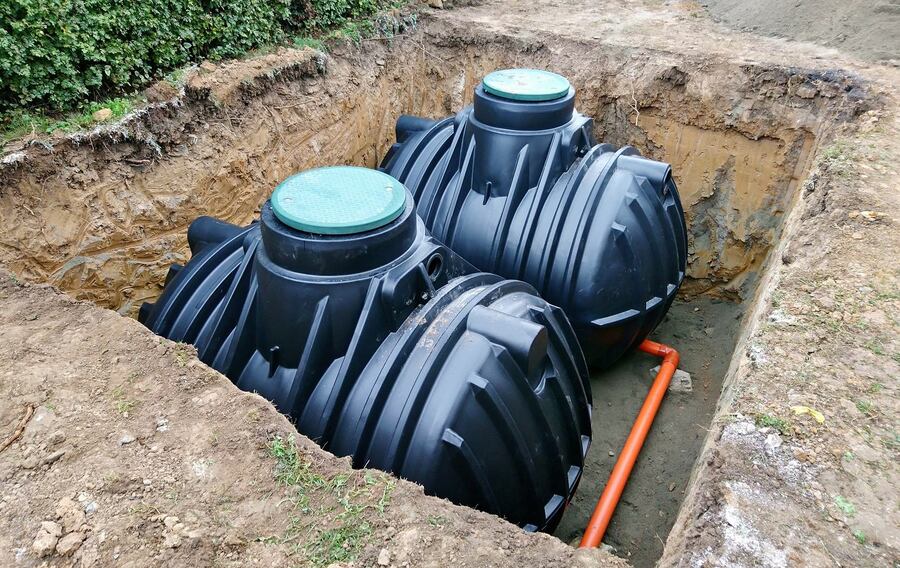What Grease Traps Do in Your Restaurant
Read More
Schedule Online
919-446-4099

Mar 14, 2025
Installing a new septic system is a significant investment that requires careful planning. Whether you are replacing an old system or installing one for the first time, making informed decisions can save you from costly mistakes and future headaches. A properly designed and maintained septic system ensures efficient wastewater management, protects the environment, and extends the lifespan of your property’s sanitation infrastructure. Before moving forward with installation, it is essential to consider several key factors to make sure the system functions effectively for years to come.
In this blog post our professionals from Septic Blue will talk about 3 things to consider before installing a new septic system.
One of the most crucial aspects of septic system installation in Forestville is evaluating your property's soil and drainage conditions. The efficiency of a septic system largely depends on how well the soil can absorb and filter wastewater. If the soil is too dense, such as clay-heavy soil, it may not drain properly, leading to backups and system failures. On the other hand, if the soil is too sandy, wastewater might filter through too quickly, increasing the risk of groundwater contamination.
A professional septic company can conduct a percolation test, commonly known as a "perc test," to assess the soil’s ability to absorb water. This test determines whether your property meets local regulations for septic installation and helps identify the best location for the drain field. Additionally, understanding your water table levels is essential. If the water table is too high, it can interfere with the septic system’s function, leading to potential contamination of nearby water sources. Consulting with an experienced septic service provider will help ensure that your property is suitable for a reliable and efficient system.
Selecting the appropriate septic tank size and design is another critical factor to consider before installation. The size of your tank should be based on the number of occupants in your household and your daily water usage. If your septic tank is too small, it may fill up quickly, leading to frequent septic pumping and potential system overload. Conversely, an excessively large tank may not function efficiently if it does not receive enough wastewater flow to maintain proper bacterial breakdown.
Beyond size, the design of your septic system should align with your property’s needs. Traditional gravity-fed systems work well in areas with proper soil drainage, while alternative systems such as pressure distribution or aerobic treatment units may be necessary for challenging terrains. Some properties may require additional filtration mechanisms to prevent contamination of nearby water bodies. Working with a reputable septic company will help you determine the best system for your home, guaranteeing long-term performance and minimal maintenance issues.
Many homeowners focus solely on installation costs without considering long-term maintenance expenses. A well-maintained septic system can last for decades, but neglecting routine care can lead to costly repairs and system failures. Regular septic pumping and cleaning are essential to prevent sludge buildup and maintain system efficiency. The frequency of pumping depends on the size of your tank and the number of people using the system. On average, septic pumping should be done every three to five years, though high-usage households may require more frequent service.
Additionally, investing in proper septic cleaning services can help extend the lifespan of your system. Over time, solid waste and grease can accumulate in the pipes and drain field, leading to clogs and potential backups. Scheduling regular inspections with a trusted septic service provider can help identify minor issues before they become major problems. Homeowners should also be mindful of their water usage and avoid flushing non-biodegradable materials, as these can contribute to system blockages and reduce efficiency.
Installing a new septic system requires careful consideration of soil conditions, tank size, and long-term maintenance needs. Conducting a thorough site evaluation, selecting the right system design, and planning for regular septic cleaning and pumping will ensure your investment remains functional and efficient. Partnering with a professional septic company can provide valuable guidance throughout the process, guaranteeing compliance with local regulations and preventing potential issues down the line. With the right planning and maintenance, your septic system will serve your property reliably for many years to come.